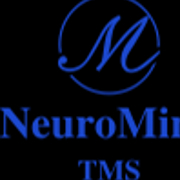TMS therapy, or transcranial magnetic stimulation, is a non-invasive procedure that uses magnetic pulses to stimulate the brain. It is a safe and effective treatment for depression that has been shown to be effective for people who have not responded to other treatments, such as medication or psychotherapy.
TMS therapy is FDA-approved for the treatment of major depressive disorder (MDD). It is also being studied for the treatment of other conditions, such as obsessive-compulsive disorder (OCD), anxiety, and post-traumatic stress disorder (PTSD).
TMS therapy is typically administered in an outpatient setting. During a TMS therapy session, a doctor will place a magnetic coil on your head. The coil will then del...
TMS therapy, or transcranial magnetic stimulation, is a non-invasive procedure that uses magnetic pulses to stimulate the brain. It is a safe and effective treatment for depression that has been shown to be effective for people who have not responded to other treatments, such as medication or psychotherapy.
TMS therapy is FDA-approved for the treatment of major depressive disorder (MDD). It is also being studied for the treatment of other conditions, such as obsessive-compulsive disorder (OCD), anxiety, and post-traumatic stress disorder (PTSD).
TMS therapy is typically administered in an outpatient setting. During a TMS therapy session, a doctor will place a magnetic coil on your head. The coil will then deliver a series of magnetic pulses to a specific area of your brain. The pulses are painless and do not cause any damage to the brain.
TMS therapy is usually given for 20-30 minutes per session, 5 days a week for 4-6 weeks. Most people start to see improvement in their symptoms within a few weeks of treatment.
TMS therapy is a safe and effective treatment for depression that can be a good option for people who have not responded to other treatments. If you are struggling with depression, talk to your doctor about whether TMS therapy may be right for you.
Here are some of the benefits of TMS therapy for depression:
It is non-invasive and does not require surgery.
It is safe and has few side effects.
It is effective for people who have not responded to other treatments.
It can be delivered in an outpatient setting.
It is relatively quick and easy to complete.
If you are considering TMS therapy for depression, it is important to talk to your doctor about the risks and benefits of the procedure. TMS therapy is not right for everyone, but it can be a valuable treatment option for people who are struggling with depression.



